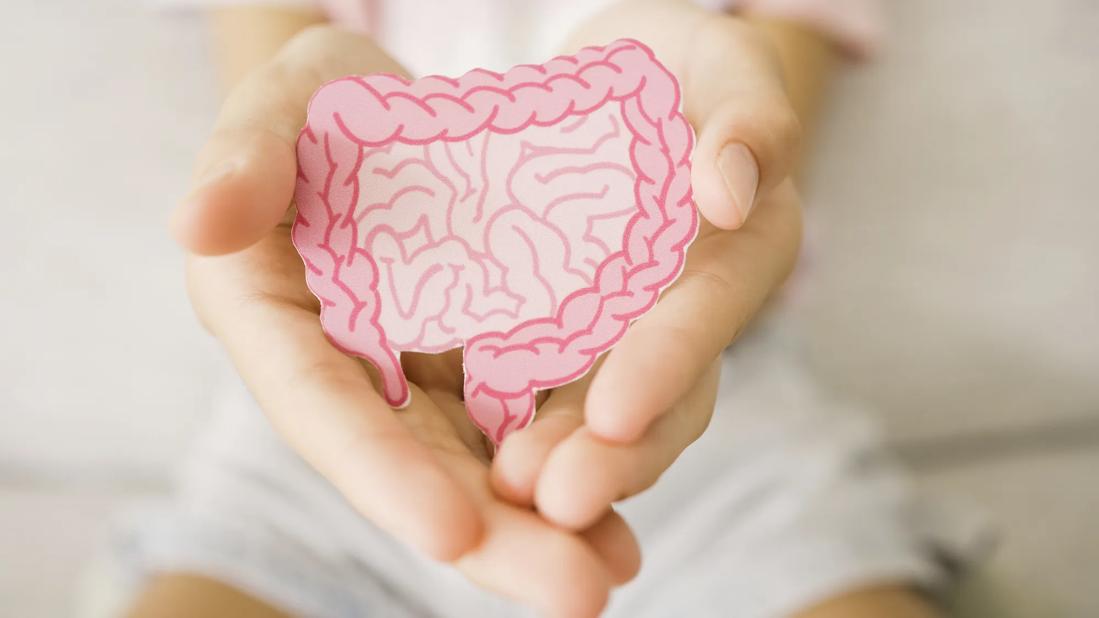Probiotics are ‘good’ bacteria that help your gut, while prebiotics are foods that fuel the bacteria

Video content: This video is available to watch online.
View video online (https://cdnapisec.kaltura.com/p/2207941/sp/220794100/playManifest/entryId/1_4nig1zzf/flavorId/1_5f3sgelj/format/url/protocol/https/a.mp4)
Probiotics are live bacteria and yeasts that have beneficial effects on your body.
You’ve probably heard of prebiotics and probiotics. And it’s OK if you’ve mixed them up (or thought they were the same thing) at one point or another. But if you’re looking to improve your gut health, it’s worth understanding the difference.
Advertisement
Cleveland Clinic is a non-profit academic medical center. Advertising on our site helps support our mission. We do not endorse non-Cleveland Clinic products or services. Policy
“In human intestines, there are many strains of two main genera of friendly bacteria, Lactobacillus and Bifidobacterium,” says dietitian and microbiome expert Gail Cresci, PhD, RD. Prebiotics serve as a food source to keep gut bacteria doing their job, while probiotics are a type of live, friendly bacteria that benefit your body.
Dr. Cresci shares insight into the role pre- and probiotics may play in your gut health.
OK, first off, let’s get these two straight. Prebiotics and probiotics help support healthy gut bacteria (which are one type of microbe of what scientists call gut microbiota) that live in your gastrointestinal tract.
Probiotics are friendly bacteria and yeasts that help break down food, communicate with your immune system and keep inflammation at bay. They can be found in fermented foods like yogurt, sauerkraut, kefir and supplements.
Then, there’s prebiotics. Prebiotics are a type of carbohydrate that our bodies are unable to digest. These compounds provide food to the good bacteria in your gut. They can be found in fiber-rich foods like whole grains, asparagus and lentils.
Think of it this way: Probiotics are the seeds you plant in your garden (AKA your gut microbiota) and prebiotics are the fertilizer that helps them grow. When you eat prebiotics, they help the good bacteria grow and do their job better, which keeps your gut and body healthy.
Advertisement
There’s an important reason why prebiotics and probiotics work together. As your gut can’t break down prebiotics, they serve as a food source for probiotics to grow. By doing this, prebiotics can help:
Before discussing supplements, it’s good to note that you can get plenty of prebiotics and probiotics from your pantry or fridge. Dr. Cresci says that the best way to build your gut army is to adjust your diet accordingly.
If you’re looking to add more probiotics through your diet, try eating more fermented foods like:
As for prebiotics, try adding the following to your diet:
In a healthy state, you can trust your gut to do all the right things for you. As you already have a good composition of friendly bacteria, you won’t need pre- or probiotics.
“Americans, unfortunately, don’t always live in a healthy state,” Dr. Cresci clarifies. “People don’t eat the 25 to 35 grams of fiber the gut bacteria need to survive and replicate.”
For some people, it may not be a lack of fiber, but rather, a chronic disease that results in not enough friendly bacteria in their gastrointestinal (GI) tract. For example, gut dysbiosis happens when the bacteria in your gut (your intestines) are out of balance.
When the “good” bacteria keep the “bad” ones in check, your gut stays healthy. But if the bad bacteria take over or there aren’t enough good ones, problems can happen, Dr. Cresci points out.
“For most people, taking a probiotic is safe,” she says. “If you live with chronic disease or a weakened immune system, talk to your doctor/provider/dietitian about the best way to add more probiotics to your diet.”
The same goes for prebiotics. “You can buy prebiotic supplements, too, but you don’t need them if you eat the foods that fortify the army of friendly bacteria in your intestines,” she adds.
Advertisement
“A probiotic in a capsule may not survive while sitting on the grocery store shelf or passing through your intestinal tract,” Dr. Cresci continues. “But when you combine it with its food source, the prebiotic, it has a much better shot at staying viable until it reaches the part of your gut where it will ultimately live.”
Dr. Cresci recommends people get their prebiotics and probiotics from a healthy diet. But if you need to take a supplement, she recommends choosing a:
If you’re not sure if your gut needs more prebiotics, probiotics or both, talk to a healthcare provider to learn more. A more varied, colorful diet may be the key. In some cases, your provider may recommend a supplement.
Advertisement

Sign up for our Health Essentials emails for expert guidance on nutrition, fitness, sleep, skin care and more.
Learn more about our editorial process.
Advertisement

This fermented food can feed your gut, help manage hunger and possibly curb colon cancer risk

Yogurt, sauerkraut, kimchi and other fermented foods are a good way to get those beneficial microbes

Taking your probiotics in the morning with food is a great strategy — but consistency is key

There’s little evidence that probiotics cause weight loss, but having a healthy gut microbiome may set the stage for it

Maintain a healthy vaginal microbiota with the help of good bacteria

The caffeine and natural acids in coffee may trigger acid reflux, but there are ways to lessen the effects

Wait a few hours, then start with water or ice chips, graduating to clear liquids and then, soft, bland foods

Even small moments of time outdoors can help reduce stress, boost mood and restore a sense of calm

A correct prescription helps your eyes see clearly — but as natural changes occur, you may need stronger or different eyeglasses

Both are medical emergencies, but they are very distinct events with different causes